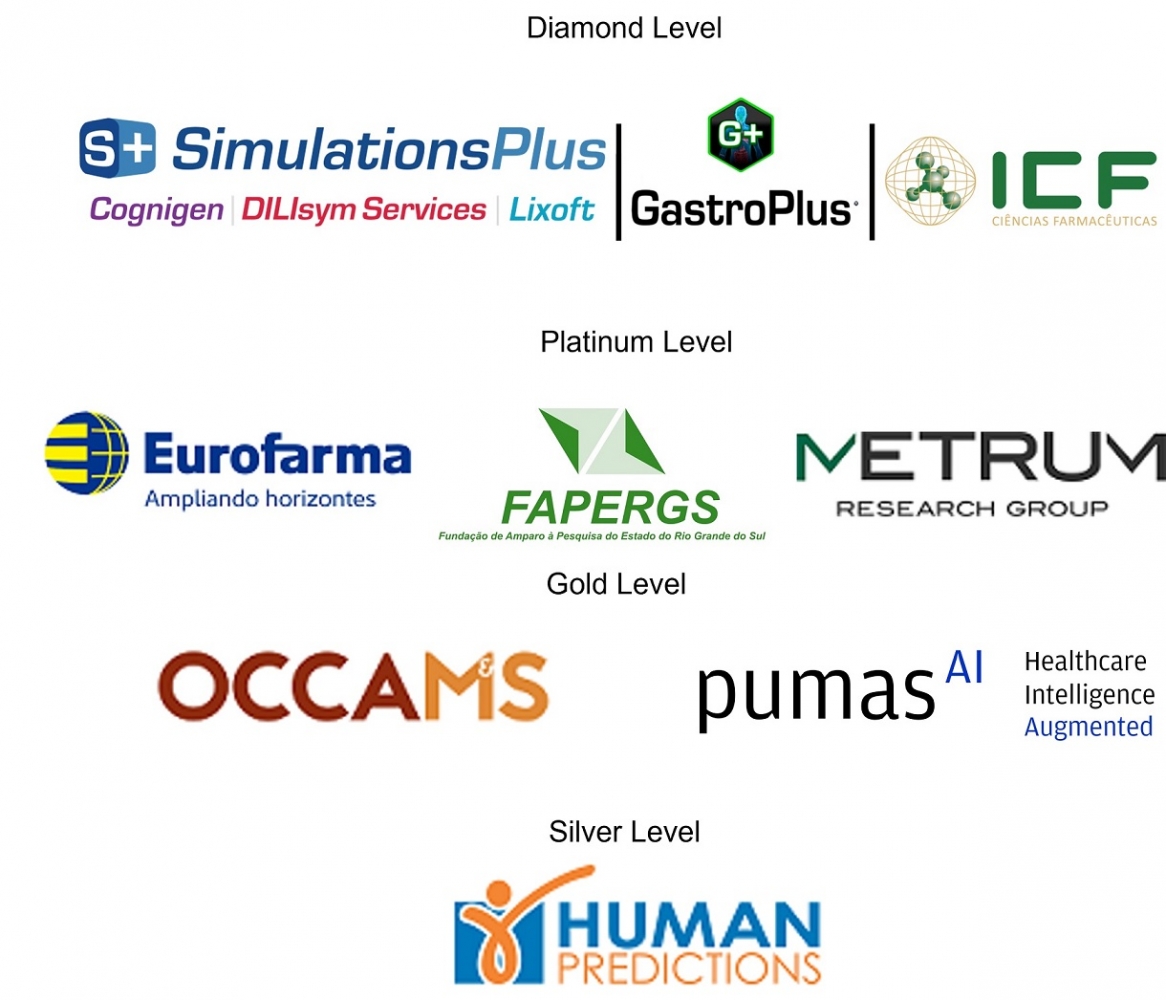Speakers
Keynote Speakers
Bernd Meibohm
.png) Bernd Meibohm, Ph.D. is a UTHSC Distinguished Professor of Pharmaceutical Sciences and Associate Dean for Research and Graduate Programs at the College of Pharmacy, The University of Tennessee Health Science Center, Memphis, Tennessee, USA. He also serves as Chair of the University of Tennessee Department of Pharmaceutical Sciences and holds the Harriet S. Van Fleet Endowed Professorship in Medicinal Chemistry and Pharmaceutics.
Bernd Meibohm, Ph.D. is a UTHSC Distinguished Professor of Pharmaceutical Sciences and Associate Dean for Research and Graduate Programs at the College of Pharmacy, The University of Tennessee Health Science Center, Memphis, Tennessee, USA. He also serves as Chair of the University of Tennessee Department of Pharmaceutical Sciences and holds the Harriet S. Van Fleet Endowed Professorship in Medicinal Chemistry and Pharmaceutics.
Dr. Meibohm received his pharmacy degree and doctorate in pharmaceutics from Technical University Carolo-Wilhelmina, Braunschweig, Germany. After completion of a clinical pharmacology research fellowship at the University of Florida in 1997, he joined the faculty of the University of South Carolina, and in 1999 the University of Tennessee.
Dr. Meibohm’s scientific interests include bacterial and viral infectious diseases, pediatric pharmacotherapy and the application of quantitative modeling and simulation techniques in preclinical and clinical drug development, with specific focus on therapeutic proteins. His research has resulted in over 190 scientific papers and book chapters (>10,000 citations; h-index 51), three textbooks, 180 abstracts, and over 200 invited scientific presentations to national and international audiences.
Dr. Meibohm is a Fellow of the American Association of Pharmaceutical Scientists (AAPS) and the American College of Clinical Pharmacology (ACCP). He was the President of ACCP 2014-2016 and served on its Board of Regents 2008-2018. He also served as 2010 Chair for the ‘Pharmacokinetics, Pharmacodynamics and Drug Metabolism’ section of AAPS, as 2016-2019 Member-at-Large on the Board of Directors of AAPS, and currently as member of the Board of Directors of the International Society of Pharmacometrics. Dr. Meibohm is also serving as associate editor for The AAPS Journal, and is a member of the editorial advisory boards of 7 other peer-reviewed publications.
Mauro Teixeira
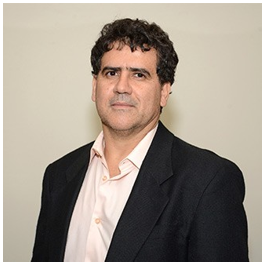 Mauro Teixeira has a degree in Medicine from the Faculty of Medicine of UFMG (1990) and a PhD in Immunopharmacology from the University of London (1994). He is a full professor at the Department of Biochemistry and Immunology at the Federal University of Minas Gerais, researcher 1A at CNPq, Member of the Brazilian Academy of Sciences, of the National Order of Scientific and Technological Merit and of the World Academy of Sciences (TWAS). Member of the editorial board of the journals "Inflammation Research", "Frontiers in Immunology", "Frontiers in Pharmacology", "Pharmacology Research" and senior editor of the "British Journal of Pharmacology". He was president of SBFTE (201202014) and SBIN (2018-2021) He is the coordinator of the National Institute of Science and Technology (INCT) in dengue and host-microorganism interactions and the Center for Advanced and Innovative Research (CT Terapias- UFMG). He works in the area of inflammation, especially trying to understand the relevance and molecular mechanisms of the inflammatory response during infectious and autoimmune diseases. He is currently vice-president of the Brazilian Academy of Sciences (Regional CO-MG).
Mauro Teixeira has a degree in Medicine from the Faculty of Medicine of UFMG (1990) and a PhD in Immunopharmacology from the University of London (1994). He is a full professor at the Department of Biochemistry and Immunology at the Federal University of Minas Gerais, researcher 1A at CNPq, Member of the Brazilian Academy of Sciences, of the National Order of Scientific and Technological Merit and of the World Academy of Sciences (TWAS). Member of the editorial board of the journals "Inflammation Research", "Frontiers in Immunology", "Frontiers in Pharmacology", "Pharmacology Research" and senior editor of the "British Journal of Pharmacology". He was president of SBFTE (201202014) and SBIN (2018-2021) He is the coordinator of the National Institute of Science and Technology (INCT) in dengue and host-microorganism interactions and the Center for Advanced and Innovative Research (CT Terapias- UFMG). He works in the area of inflammation, especially trying to understand the relevance and molecular mechanisms of the inflammatory response during infectious and autoimmune diseases. He is currently vice-president of the Brazilian Academy of Sciences (Regional CO-MG).
Oscar Della Pasqua
 Prof Oscar Della Pasqua is Chair in Clinical Pharmacology & Therapeutics at University College London, UK. He is also Senior Director Clinical Pharmacology at GlaxoSmithKline R&D and Associate Fellow at the National Research Council in Rome, Italy.
Prof Oscar Della Pasqua is Chair in Clinical Pharmacology & Therapeutics at University College London, UK. He is also Senior Director Clinical Pharmacology at GlaxoSmithKline R&D and Associate Fellow at the National Research Council in Rome, Italy.
In addition to his extensive experience in early and late clinical development, he leads a research group focused on biomarkers, disease modelling and clinical trial design methodology. Among other things, he currently leads the modelling and simulation activities in ERA4TB, an international consortium supported by the Innovative Medicines Iniative, aimed at the development of drug-disease-host immune system response model for the evaluation of novel interventions for tuberculosis. He has more than 150 scientific publications in peer-reviewed journals and is Senior Editor of the British Journal of Clinical Pharmacology.
Symposium Speakers
Andrea Diniz
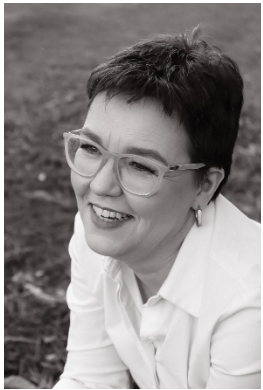 Andrea Diniz is a pharmacist and works as a full professor and researcher at State University of Maringá, Brazil. Dr. Diniz is also an advisor to the postgraduation program. Her research group has worked to clarify how ontogeny can impacts the exposition of drugs in special population using pharmacometric approaches. Biopharmaceutical differences in special conditions is also a field which is being explored by her group.
Andrea Diniz is a pharmacist and works as a full professor and researcher at State University of Maringá, Brazil. Dr. Diniz is also an advisor to the postgraduation program. Her research group has worked to clarify how ontogeny can impacts the exposition of drugs in special population using pharmacometric approaches. Biopharmaceutical differences in special conditions is also a field which is being explored by her group.
Bibiana Verlindo de Araujo
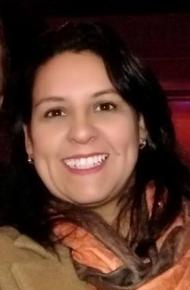 Bibiana Verlindo de Araujo is Professor of Pharmacokinetics and Clinical Pharmacokinetics at the Federal University of Rio Grande do Sul, where she teaches in the Faculty of Pharmacy and in the Graduate Program of Pharmaceutical Sciences. She has a Pharmacy Bachelor’s Degree from the Federal University of Rio Grande do Sul, Master Science and Ph.D. degrees in Pharmaceutical Sciences from the same University. In 2009 she received an Honorable Mention by her Doctoral Thesis from CAPES. Her researches are focused in Pharmacokinetic/Pharmacodynamic modeling of antifungals, antimalarials and antidiabetics drugs, pharmacokinetics evaluation of new compounds and drug-loaded nanoparticles and microdialysis. In 2012 she has working in the University of Florida, improving her skills in population pharmacokinetics in the Departament of Pharmaceutics. Up to now she was advisor of 05 Master of Science Thesis, 03 Doctoral Thesis and more than 30 undergraduate students. The results of her research were published in different indexed journal such as Antimicrobial Agents and Chemotherapy, European Journal of Pharmaceutical Sciences, International Journal of Antimicrobial Agents and Biomedical Chromatography, with more than 100 abstracts presented at Conferences and Congress.
Bibiana Verlindo de Araujo is Professor of Pharmacokinetics and Clinical Pharmacokinetics at the Federal University of Rio Grande do Sul, where she teaches in the Faculty of Pharmacy and in the Graduate Program of Pharmaceutical Sciences. She has a Pharmacy Bachelor’s Degree from the Federal University of Rio Grande do Sul, Master Science and Ph.D. degrees in Pharmaceutical Sciences from the same University. In 2009 she received an Honorable Mention by her Doctoral Thesis from CAPES. Her researches are focused in Pharmacokinetic/Pharmacodynamic modeling of antifungals, antimalarials and antidiabetics drugs, pharmacokinetics evaluation of new compounds and drug-loaded nanoparticles and microdialysis. In 2012 she has working in the University of Florida, improving her skills in population pharmacokinetics in the Departament of Pharmaceutics. Up to now she was advisor of 05 Master of Science Thesis, 03 Doctoral Thesis and more than 30 undergraduate students. The results of her research were published in different indexed journal such as Antimicrobial Agents and Chemotherapy, European Journal of Pharmaceutical Sciences, International Journal of Antimicrobial Agents and Biomedical Chromatography, with more than 100 abstracts presented at Conferences and Congress.
Daniela Conrado
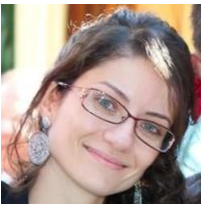 Dr. Daniela Conrado executes model-informed drug development and clinical biomarker identification for unmet medical needs, with a special focus on neuroscience. She has over 15 years of research experience in pre-clinical or clinical pharmacology and pharmacometrics, and has worked on Phase 1 through Phase 4 drug development stages. She is currently Associate Director of Quantitative Pharmacology at Regeneron and the Chief Scientist at e-Quantify, helping fulfill unmet medical needs by assisting with model-informed drug development strategy and pharmacometric analysis.
Dr. Daniela Conrado executes model-informed drug development and clinical biomarker identification for unmet medical needs, with a special focus on neuroscience. She has over 15 years of research experience in pre-clinical or clinical pharmacology and pharmacometrics, and has worked on Phase 1 through Phase 4 drug development stages. She is currently Associate Director of Quantitative Pharmacology at Regeneron and the Chief Scientist at e-Quantify, helping fulfill unmet medical needs by assisting with model-informed drug development strategy and pharmacometric analysis.
Dr. Conrado has worked as a Fellow at the Food and Drug Administration (FDA), as a Clinical Pharmacology Lead at Pfizer, and as a pharmacometrician at Metrum, Critical Path Institute and Alnylam. At the Critical Path Institute, she led the first regulatory qualification of a biomarker for Parkinson’s disease clinical trials. She has received 20 scientific awards or fellowships including the University of Florida 40 under 40 (2019), the American Society for Clinical Pharmacology and Therapeutics (ASCPT) Top Poster Recognition Award (2019), the American Conference of Pharmacometrics (ACoP) Quality Abstract Award (2018), the ASCPT Presidential Trainee Award (2012), the American College of Clinical Pharmacology (ACCP) Wayne A. Colburn Memorial Award (2011, 2012), and the Oak Ridge Institute for Science and Education (ORISE) Research Fellowship (2012).
Dr. Conrado has published more than 70 journal articles or conference proceedings and is an active member of the ASCPT and the International Society of Pharmacometrics (ISoP). She received a PhD in Clinical Pharmacology and Pharmacometrics from University of Florida under the supervision of Dr. Hartmut Derendorf.
Diana Marcela Aragón Novoa
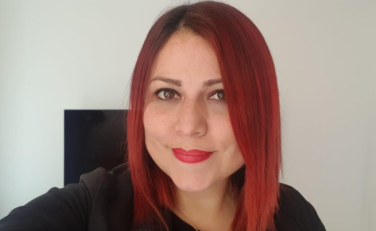 Pharmacist, PhD in Pharmaceutical Science from National University of Colombia with PhD thesis awarded as “Merithorius Thesis”. She has experience in the research and development of new drug delivery systems, extract standardization and the study of pharmacokinetic and biopharmaceutical properties of different active pharmaceutical agents. She has supervised more than 15 Master and PhD Thesis and has published more than 40 scientific papers. She was awarded for her performance as researcher in the National University of Colombia and is a Senior researcher according to the Ministry of Science of Colombia. Currently she is full professor in the National University of Colombia. In the same University she has held academic-administrative positions as director of the undergraduate and graduate Pharmacy programs and Vice-Dean of the Faculty of Science. She has led research projects funded by different organizations with Colombian and foreign participants. She has been an invited researcher in Federal University of Rio Grande do Sul (Brasil) and Innsbruck University (Austria). Is member of the Ibero-American Pharmacometrics Network and topic editor and guest editor of the scientific journal “Pharmaceutics “.
Pharmacist, PhD in Pharmaceutical Science from National University of Colombia with PhD thesis awarded as “Merithorius Thesis”. She has experience in the research and development of new drug delivery systems, extract standardization and the study of pharmacokinetic and biopharmaceutical properties of different active pharmaceutical agents. She has supervised more than 15 Master and PhD Thesis and has published more than 40 scientific papers. She was awarded for her performance as researcher in the National University of Colombia and is a Senior researcher according to the Ministry of Science of Colombia. Currently she is full professor in the National University of Colombia. In the same University she has held academic-administrative positions as director of the undergraduate and graduate Pharmacy programs and Vice-Dean of the Faculty of Science. She has led research projects funded by different organizations with Colombian and foreign participants. She has been an invited researcher in Federal University of Rio Grande do Sul (Brasil) and Innsbruck University (Austria). Is member of the Ibero-American Pharmacometrics Network and topic editor and guest editor of the scientific journal “Pharmaceutics “.
France Mentre
.png) France Mentré is Professor of Biostatistics in the School of Medicine of University of Paris. She lead an INSERM research team on Biostatistical Modelling and Pharmacometrics in treatment of Infectious Diseases. She has worked on development and application of methods for nonlinear mixed-effects models and pharmacometrics for more than 30 years. She applies these models to understand the variability in the response to anti-infective agents. She is leading the development of the software PFIM for optimal design in pharmacometrics. She has published more than 250 articles in biostatistics, pharmacometrics, clinical pharmacology or medical research.
France Mentré is Professor of Biostatistics in the School of Medicine of University of Paris. She lead an INSERM research team on Biostatistical Modelling and Pharmacometrics in treatment of Infectious Diseases. She has worked on development and application of methods for nonlinear mixed-effects models and pharmacometrics for more than 30 years. She applies these models to understand the variability in the response to anti-infective agents. She is leading the development of the software PFIM for optimal design in pharmacometrics. She has published more than 250 articles in biostatistics, pharmacometrics, clinical pharmacology or medical research.
She received in 2013 the USCF/ISoP Lewis B. Sheiner Lecturer Award and in 2018 the ASCPT Sheiner-Beal Pharmacometrics award. She is the co-chair and one of the founder of the Special Interest Group on Statistics and Pharmacometrics of ASA and ISOP. She is editor in chief since October 2018 of CPT: Pharmacometrics and System Pharmacology.
Gustavo Mendes Lima Santos
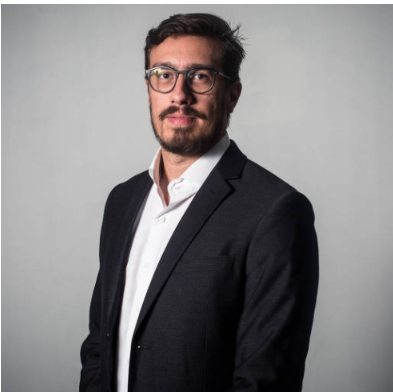 General Manager of Medicines and Biological Products – Brazili0an Health Regulatory Agency (Anvisa). PhD Candidate in Pharmaceutical Sciences at State University of Maringá, Master’s Degree in Toxicology by the State University of Londrina (2013), Specialization in Sanitary Surveillance by FIOCRUZ (2007) and Degree in Industrial Pharmacy from the University of São Paulo (2001). 18 years of experience in marketing authorization of medicines and clinical research inspections.
General Manager of Medicines and Biological Products – Brazili0an Health Regulatory Agency (Anvisa). PhD Candidate in Pharmaceutical Sciences at State University of Maringá, Master’s Degree in Toxicology by the State University of Londrina (2013), Specialization in Sanitary Surveillance by FIOCRUZ (2007) and Degree in Industrial Pharmacy from the University of São Paulo (2001). 18 years of experience in marketing authorization of medicines and clinical research inspections.
José David Gómez Mantilla
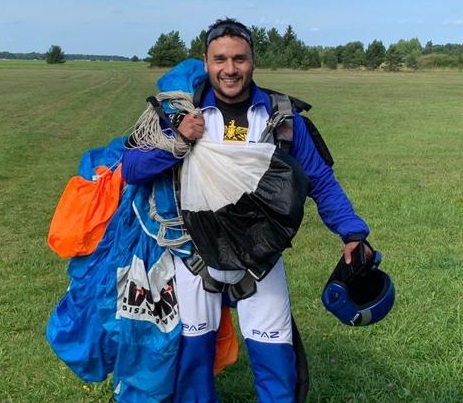 José David is a Pharmacist and Statistics Specialist from the National University of Colombia. He participated in several IT entrepreneurial projects before starting his PHD that he finished in Saarland University in modeling and simulation. After his PhD he pursued his post-doctoral studies on Systems Pharmacology at University of Navarra and from there he has been since 2017 working in Boehringer Ingelheim on QSP and PBPK. He currently leads the clinical PBPK activities on the Translational Medicine and clinical Pharmacology Department.
José David is a Pharmacist and Statistics Specialist from the National University of Colombia. He participated in several IT entrepreneurial projects before starting his PHD that he finished in Saarland University in modeling and simulation. After his PhD he pursued his post-doctoral studies on Systems Pharmacology at University of Navarra and from there he has been since 2017 working in Boehringer Ingelheim on QSP and PBPK. He currently leads the clinical PBPK activities on the Translational Medicine and clinical Pharmacology Department.
Jürgen Bullita
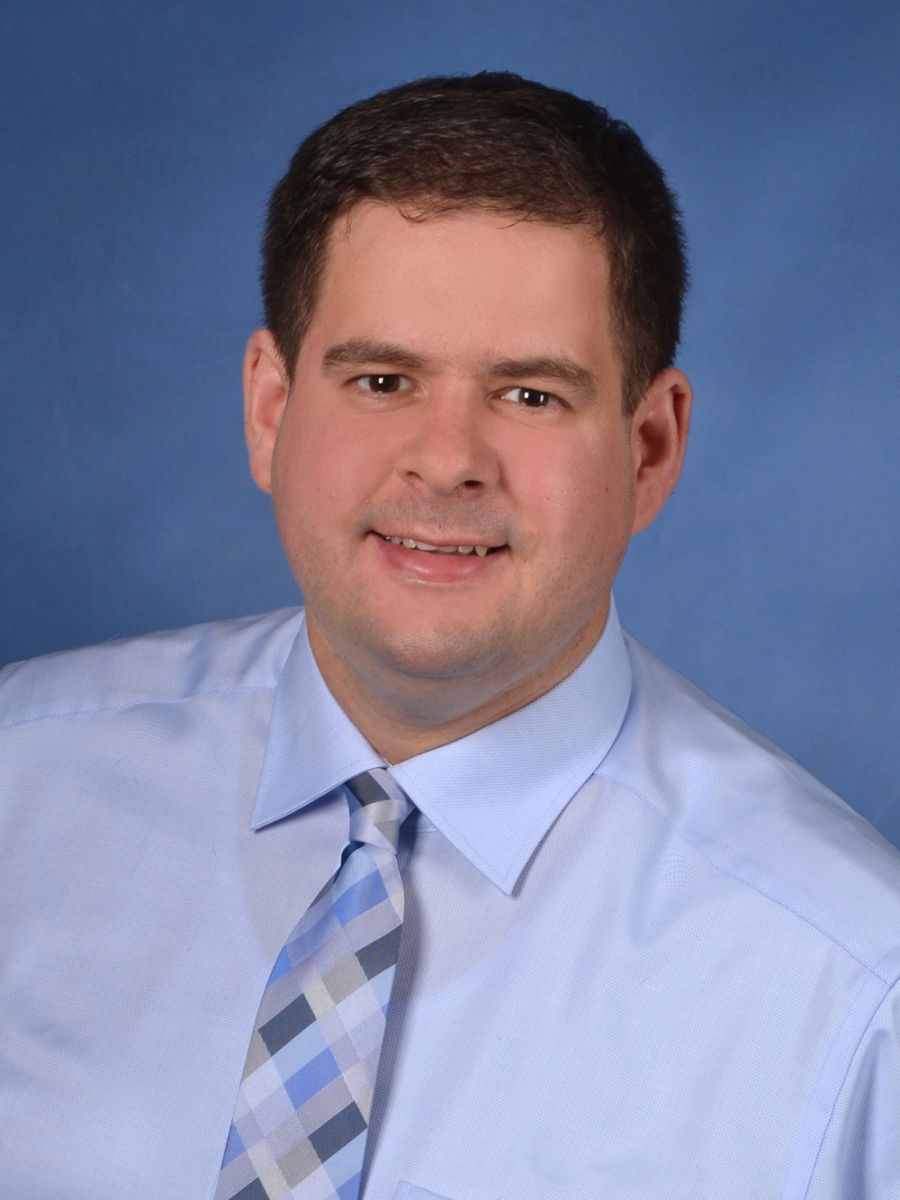 Jürgen B. Bulitta, Ph.D., is a professor in the Department of Pharmacotherapy and Translational Research at the UF College of Pharmacy. He is supported by the University of Florida’s preeminence program in Drug Discovery and Development and received the Perry E. Foote Eminent Scholar Chair, Endowed Professorship, in 2019. Dr. Bulitta’s research focuses on combating multidrug-resistant bacterial ‘superbugs’ which present one of the three most serious threats to human health.
Jürgen B. Bulitta, Ph.D., is a professor in the Department of Pharmacotherapy and Translational Research at the UF College of Pharmacy. He is supported by the University of Florida’s preeminence program in Drug Discovery and Development and received the Perry E. Foote Eminent Scholar Chair, Endowed Professorship, in 2019. Dr. Bulitta’s research focuses on combating multidrug-resistant bacterial ‘superbugs’ which present one of the three most serious threats to human health.
His mission is to optimize patient therapies and innovative drug development by providing a focal point for translational research in infectious diseases and related areas and to serve as an internationally-leading, interdisciplinary, collaborative program for translational research.
Dr. Bulitta’s vision is to provide novel solutions and great hope for patients with serious, life-threatening infections by developing new safe and effective therapies. These are informed at the molecular level by an innovative combination of mechanistic, in vitro, animal, and quantitative approaches to rationally optimize outcomes in patients. His highly collaborative research program leverages the latest pharmacological, microbiological, biochemical, and computational approaches. This creates unique translational insights that enable novel therapies and dosing strategies, as well as the design and development of new drugs.
He won 26 peer-reviewed grants, published more than 140 peer-reviewed papers, and contributed to over 97 phase I-IV clinical trials. He reviewed several NIH study sections and received 23 awards since 1998. These include the Giorgio Segré Prize 2010 for distinguished contributions in the field of pharmacokinetics and pharmacodynamics by the European Federation for Pharmaceutical Sciences (EUFEPS) and the 2012 ASCEPT Denis Wade Johnson & Johnson New Investigators Award. He is the creator and developed of the SADAPT-TRAN package that greatly facilitates the development of systems pharmacology models in the S-ADAPT population modeling package.
Marival Bermejo
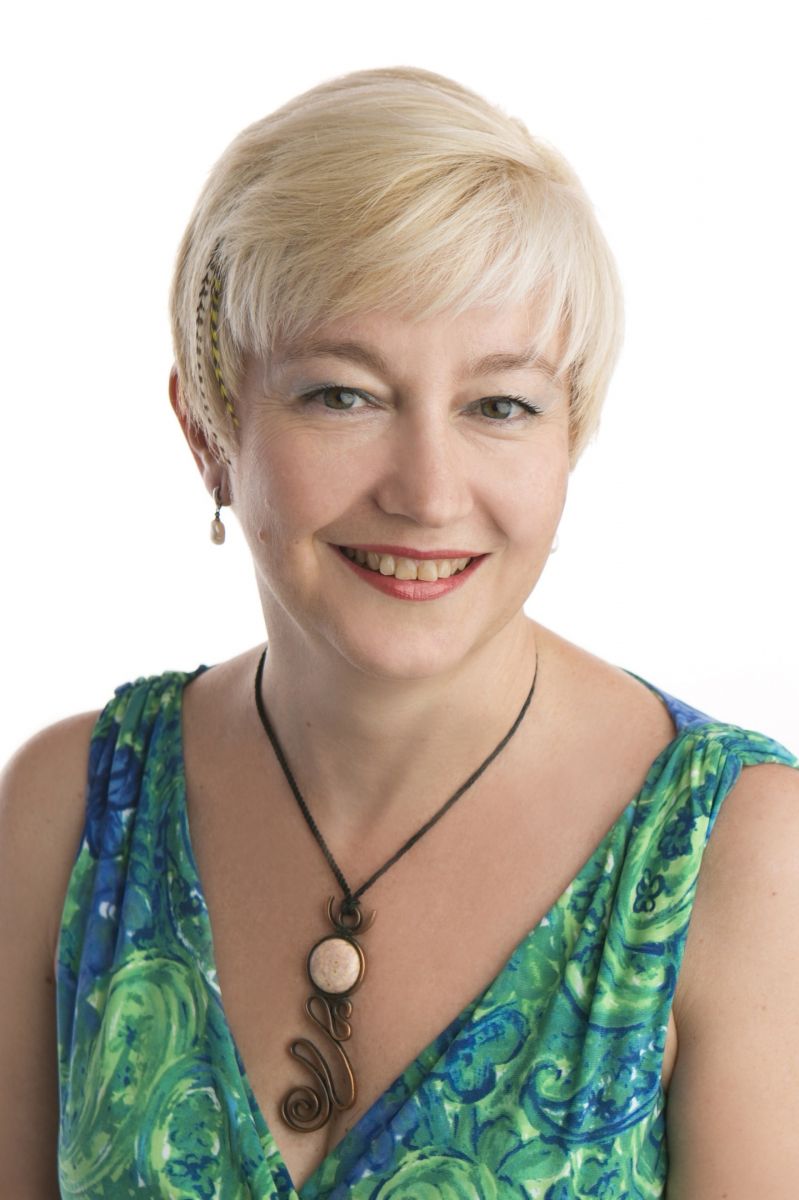 Marival Bermejo is Full Professor at the University Miguel Hernández, Spain. She earned her Ph.D degree at the University of Valencia in 1992. She got a position as Assistant Professor in 1994 and was promoted to Associate Professor in 1998. In 2008 she was appointed at University Miguel Hernández to coordinate the Area of Pharmacy in the Department of Engineering. She performed two post-doctoral research stages at the Institute of Topology and System Dynamics in Paris VII University, with Prof. Christiane Mercier and at the University of Michigan, with Prof. Gordon Amidon. Dr. Bermejo research is centered on developing in vitro models of biological barriers and predictive dissolution methods. She has been co-author of more than 130 papers, 10 books chapters and is co-author with Gordon Amidon of the English and Spanish versions of Modern Biopharmaceutics, a CD-Rom teaching tool. In 2001 she received the Research Prize of “Liconsa-Chemo Ibérica” for her work on fluoroquinolones absorption. She is member of the Board of Directors of the Drug Delivery Foundation and external assessor of the Spanish Agency of Medicines and EMA. Dr Bermejo has been nominated foreign member of the Chilean Academy of Sciences for her contribution to Pharmaceutical Scientists education and corresponding member of the Academy of Pharmacy of Valencia. She was awarded with a Fulbright scholarship for a 4-month sabbatical period at the University of Michigan in 2015 working on in vivo predictive dissolution with Prof. Amidon as local host and she has been appointed as visiting research scholar in 2016-19 summer periods.
Marival Bermejo is Full Professor at the University Miguel Hernández, Spain. She earned her Ph.D degree at the University of Valencia in 1992. She got a position as Assistant Professor in 1994 and was promoted to Associate Professor in 1998. In 2008 she was appointed at University Miguel Hernández to coordinate the Area of Pharmacy in the Department of Engineering. She performed two post-doctoral research stages at the Institute of Topology and System Dynamics in Paris VII University, with Prof. Christiane Mercier and at the University of Michigan, with Prof. Gordon Amidon. Dr. Bermejo research is centered on developing in vitro models of biological barriers and predictive dissolution methods. She has been co-author of more than 130 papers, 10 books chapters and is co-author with Gordon Amidon of the English and Spanish versions of Modern Biopharmaceutics, a CD-Rom teaching tool. In 2001 she received the Research Prize of “Liconsa-Chemo Ibérica” for her work on fluoroquinolones absorption. She is member of the Board of Directors of the Drug Delivery Foundation and external assessor of the Spanish Agency of Medicines and EMA. Dr Bermejo has been nominated foreign member of the Chilean Academy of Sciences for her contribution to Pharmaceutical Scientists education and corresponding member of the Academy of Pharmacy of Valencia. She was awarded with a Fulbright scholarship for a 4-month sabbatical period at the University of Michigan in 2015 working on in vivo predictive dissolution with Prof. Amidon as local host and she has been appointed as visiting research scholar in 2016-19 summer periods.
Paula Scaiquevich
.png) Dr Schaiquevich is a Principal Researcher (CONICET) and runs a pharmacology laboratory at the largest pediatric hospital in Argentina (Hospital de Pediatría JP Garrahan).
Dr Schaiquevich is a Principal Researcher (CONICET) and runs a pharmacology laboratory at the largest pediatric hospital in Argentina (Hospital de Pediatría JP Garrahan).
She is a pharmacist, PhD from the University of Buenos Aires, and did a postdoctoral fellow at St Jude Children´s Research Hospital (TN, US).
She has a broad background in pharmacology, with specific training and expertise in clinical and preclinical pharmacology and pharmacokinetics. Her research interests are focused on optimizing the use of therapeutic agents in pediatric patients by characterizing pharmacokinetic sources of variability in response to provide guidance for achieving therapeutic targets, new routes of drug delivery and studying the pharmacological sensitivity in preclinical models as potential alternatives for translation into patient treatment. Although primarily focused in oncology, her interests have also included pharmacology in transplant patients and in patients with severe infections
She has directed several doctoral thesis, published more than 90 articles in indexed journals, 3 book chapters, and has been invited to present in several national and international meetings in pharmacology and pharmacometrics.
Robin Michelet
 Dr. Robin Michelet is a Bio-science Engineer (BSc/MSc, 2014) by training and obtained his PhD in Pharmaceutical sciences in 2018 on the topic of bottom-up, top-down and middle-out modelling and simulation approaches in pediatric drug research at Ghent University, Belgium. Currently, he works as Consultant at qPharmetra and as Senior Scientist in the laboratory of Professor Charlotte Kloft at Freie Universitaet Berlin. He has mentored 15 PhD students to date in research topics applying pharmacometric approaches in anti-infective therapy, oncology, gastro-intestinal diseases, immunology, endocrinology and pediatrics. As a consultant, he has worked on translation of anti-viral and anti-cancer biologics from the pre-clinical to the clinical space, bioequivalence of complex formulation, study design and PK/PD modelling of opioids. He is an avid supporter of the use of translational modelling and simulation approaches capitalizing on all available knowledge regardless of the therapeutic area.
Dr. Robin Michelet is a Bio-science Engineer (BSc/MSc, 2014) by training and obtained his PhD in Pharmaceutical sciences in 2018 on the topic of bottom-up, top-down and middle-out modelling and simulation approaches in pediatric drug research at Ghent University, Belgium. Currently, he works as Consultant at qPharmetra and as Senior Scientist in the laboratory of Professor Charlotte Kloft at Freie Universitaet Berlin. He has mentored 15 PhD students to date in research topics applying pharmacometric approaches in anti-infective therapy, oncology, gastro-intestinal diseases, immunology, endocrinology and pediatrics. As a consultant, he has worked on translation of anti-viral and anti-cancer biologics from the pre-clinical to the clinical space, bioequivalence of complex formulation, study design and PK/PD modelling of opioids. He is an avid supporter of the use of translational modelling and simulation approaches capitalizing on all available knowledge regardless of the therapeutic area.
Stacey Tannenmbaum
.png) Stacey Tannenbaum is an Executive Director, leading the US Pharmacometrics group at Astellas Pharma. Stacey completed her BSE in Biomedical Engineering at Duke University, and her PhD in Pharmaceutical Sciences and Applied Mathematics at the University of Arizona. She held a post-doctoral fellowship at the Center for Drug Development Science at Georgetown University. Stacey spent 8.5 years in the Modeling and Simulation (M&S) group at Novartis then joined Astellas in January of 2012. She holds faculty positions at the University of Arizona, University of the Pacific, and the University of Tennessee Health Science Center.
Stacey Tannenbaum is an Executive Director, leading the US Pharmacometrics group at Astellas Pharma. Stacey completed her BSE in Biomedical Engineering at Duke University, and her PhD in Pharmaceutical Sciences and Applied Mathematics at the University of Arizona. She held a post-doctoral fellowship at the Center for Drug Development Science at Georgetown University. Stacey spent 8.5 years in the Modeling and Simulation (M&S) group at Novartis then joined Astellas in January of 2012. She holds faculty positions at the University of Arizona, University of the Pacific, and the University of Tennessee Health Science Center.
Stacey has had significant impact on the global Pharmacometrics community by co-founding the International Society of Pharmacometrics (ISoP), serving as its first President, and sits on a number of ISoP committees and interest groups including chairing the Statistics and Pharmacometrics Special Interest Group. She also co-founded the American Conference on Pharmacometrics (ACoP) and was conference chair for the first three events. She received the ISoP Fellowship in 2014 and Leadership Award in 2018. Stacey co-founded the local networking group Modeling and Simulation Applications in Clinical Pharmacotherapy (MoSAiC, now ISoP NJ/NY/PA) and is the Executive Committee chair for the World Conference on Pharmacometrics (WCoP). She served as a board member of the American Association of Pharmaceutical Scientists (AAPS), chaired the AAPS M&S Focus Group, and was the co-chair for the AAPS Forum for Connecting Predictive Modelers.
Susanna Edith Medellin Garibay
 Research Professor attached to the Faculty of Chemical Sciences at the Universidad Autónoma de San Luis Potosí, responsible for the Biopharmacy and Pharmacokinetics Laboratory. Member of the National System of Researchers (Mexico) and member of the Basic Academic Core of the Postgraduate Program in Pharmacobiological Sciences. Experience in clinical pharmacokinetics, population pharmacokinetics, design of sampling strategies, Bayesian estimation and stochastic simulations. Experience in the development of quantitative bioanalytical methods and analytical problem solving using liquid chromatography and mass spectrometry.
Research Professor attached to the Faculty of Chemical Sciences at the Universidad Autónoma de San Luis Potosí, responsible for the Biopharmacy and Pharmacokinetics Laboratory. Member of the National System of Researchers (Mexico) and member of the Basic Academic Core of the Postgraduate Program in Pharmacobiological Sciences. Experience in clinical pharmacokinetics, population pharmacokinetics, design of sampling strategies, Bayesian estimation and stochastic simulations. Experience in the development of quantitative bioanalytical methods and analytical problem solving using liquid chromatography and mass spectrometry.
Valvanera Vozmediano
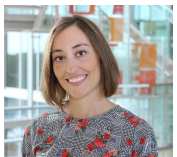 Dr. Vozmediano is Assistant Professor at the Center of Pharmacometrics & System Pharmacology, University of Florida. She has been working as Principal Consultant with Dynakin’s Drug Modeling & Consulting group, and has been the Director of the Research & Development Department of the same company since 2008 until she joined the UF as faculty.
Dr. Vozmediano is Assistant Professor at the Center of Pharmacometrics & System Pharmacology, University of Florida. She has been working as Principal Consultant with Dynakin’s Drug Modeling & Consulting group, and has been the Director of the Research & Development Department of the same company since 2008 until she joined the UF as faculty.
She received her B.S. in Pharmacy from the University of Basque Country in Spain in 2006, and earned her Ph.D. in Pharmacology in 2011 at the same University. Her doctorate research was completed at Dynakin with the design of pioneering regulatory standard pediatric investigational plan (PIP) for a new H1 antihistamine drug applying state of the art modeling & simulation (M&S) techniques. Her research activity includes a postdoctoral internship as Marie Curie (B-MOB program) at the University of Florida under the supervision of Professor Hartmut Derendorf and 25+ peer-reviewed publications. Valva is expert in the application of quantitative approaches in support of scientific and regulatory questions on drug development. She has successfully completed several projects in that domain as an industrial consultant in FTIM questions, PIPs, and bridging studies, including support to successful filings for new drug applications. Her main research interests are two-fold. One is the integration of quantitative approaches to understand the effect of growth, aging and disease on pharmacokinetic and pharmacodynamic processes, and ultimately on treatment response. The other is mechanistic absorption modeling for complex drug products and complex routes of administration (e.g., nasal formulations, nose-to-brain delivery, blood brain barrier passage, etc.). Valvanera is invited professor for the Master in Drug Development of the University of Basque Country, and she contributes to several courses from the Pharm.D. and Ph.D. programs at the University of Florida.
Workshop Speakers
Ana Ruiz
 Ana’s career has been mainly working in Industry focusing on the therapeutic areas of oncology and Inflammation.
Ana’s career has been mainly working in Industry focusing on the therapeutic areas of oncology and Inflammation.
Ana is a Senior Principal Scientist and Group Leader at Metrum Research Group. In the past, Ana led the Pfizer Oncology Pharmacometrics group and her team was awarded several times for delivering high quality work and closely collaborating with clinical, statistics and translational medicine putting together solid and successful submission packages. Ana has worked on the quantitative aspects of more than 9 successful submissions (including small and large molecules) to different regulatory agencies.
Ana holds a Pharm.D, a Masters in Statistics, and a PhD in quantitative Pharmacology. Ana has led different groups throughout her career and mentored many junior scientists.
Furthermore, Ana holds a position as Assistant Clinical Professor at Skaggs School of Pharmacy, University of California San Diego (UCSD), she is a member of the ISoP Publication Committee, ISoP Board of directors, and PAGE scientific Committee.
Daniela Amaral Silva
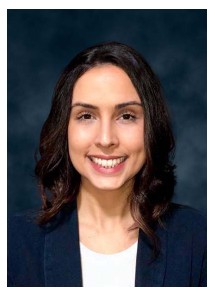 Daniela Amaral Silva is a Post-Doc fellow in Simulation Technologies at Simulations Plus. Her research is focused on the modeling of absorption of complex formulations in GastroPlus.
Daniela Amaral Silva is a Post-Doc fellow in Simulation Technologies at Simulations Plus. Her research is focused on the modeling of absorption of complex formulations in GastroPlus.
Daniela holds a BSc. in Pharmacy and Biochemistry from the University of Sao Paulo, Brazil. She graduated with a Ph.D. in Pharmaceutical Sciences from the University of Alberta under the supervision of Dr. Raimar Löbenberg and Dr. Neal M. Davies. Her graduate work focused on the development of novel biopharmaceutical investigations towards drug and formulation performance optimization.
Iñaki F. Trocóniz
 Dr. Iñaki F. Trocóniz is Professor of Biopharmaceutics and at the University of Navarra, Pamplona (Spain). Currently he is leading the research group in Pharmacometrics and Systems Pharmacology covering a broad spectrum of modelling aspects in oncology, gene therapy, auto-immune diseases and pain. He has published over one hundred fifty articles in peer reviewed journals, was awarded by the EUFEPS with the Giorgio Segré prize in pharmacokinetics/pharmacodynamics, and is the current Pharmacometrics section editor of Pharmaceutical Research.
Dr. Iñaki F. Trocóniz is Professor of Biopharmaceutics and at the University of Navarra, Pamplona (Spain). Currently he is leading the research group in Pharmacometrics and Systems Pharmacology covering a broad spectrum of modelling aspects in oncology, gene therapy, auto-immune diseases and pain. He has published over one hundred fifty articles in peer reviewed journals, was awarded by the EUFEPS with the Giorgio Segré prize in pharmacokinetics/pharmacodynamics, and is the current Pharmacometrics section editor of Pharmaceutical Research.
James Mullin
 James Mullin is a Sr. Principal Scientist in the Simulations Technologies group and Product Manager of DDDPlus™ and MembranePlus™, two in silico software tools to predict in vitro dissolution and permeability & clearance mechanisms/kinetics. James has 17 years of experience in computational modeling in the pharmaceutical industry, spending 10 years at Bend Research before joining Simulations Plus in 2014. In his most recent research, James developed models for the effect of meal type and calories in the fed state, dynamic fluid volume in the intestine, pulmonary absorption of volatile materials, intra-articular delivery, and enhancements to the population simulator based on an industry collaboration. Additionally, James has implemented models for the Artificial Stomach and Duodenum and Biphasic dissolution experiments in DDDPlus. James has also contributed to several FDA & EMA collaboration grants for Simulations Plus and trains scientists on the use of mechanistic modeling & simulation technology.
James Mullin is a Sr. Principal Scientist in the Simulations Technologies group and Product Manager of DDDPlus™ and MembranePlus™, two in silico software tools to predict in vitro dissolution and permeability & clearance mechanisms/kinetics. James has 17 years of experience in computational modeling in the pharmaceutical industry, spending 10 years at Bend Research before joining Simulations Plus in 2014. In his most recent research, James developed models for the effect of meal type and calories in the fed state, dynamic fluid volume in the intestine, pulmonary absorption of volatile materials, intra-articular delivery, and enhancements to the population simulator based on an industry collaboration. Additionally, James has implemented models for the Artificial Stomach and Duodenum and Biphasic dissolution experiments in DDDPlus. James has also contributed to several FDA & EMA collaboration grants for Simulations Plus and trains scientists on the use of mechanistic modeling & simulation technology.
Manuel Ibarra
 Manuel Ibarra is an Associate Professor of the Pharmaceutical Sciences Department at the School of Chemistry – Universidad de la República (UdelaR) of Uruguay, where he currently is the Analytical and Biostatistics Supervisor of the University’s Bioavailability and Bioequivalence Centre for Medicine Evaluation (CEBIOBE).
Manuel Ibarra is an Associate Professor of the Pharmaceutical Sciences Department at the School of Chemistry – Universidad de la República (UdelaR) of Uruguay, where he currently is the Analytical and Biostatistics Supervisor of the University’s Bioavailability and Bioequivalence Centre for Medicine Evaluation (CEBIOBE).
He studied Pharmaceutical Chemistry at the School of Chemistry obtaining his Master’s degree in 2009. In 2010 he started the Chemistry Postgraduate program at UdelaR, with focus on the evaluation of sex-related differences in drug pharmacokinetics and bioequivalence. He was awarded with the Ph.D. degree in 2014.
During his Ph.D. studies, while doing a short-term scholarship at the College of Pharmacy of the University of Florida (Pharmaceutics Department), he got involved with the science of pharmacometrics. Since then, his research focus has been exploring and developing pharmacometric models in basic and applied pharmacological research, aiming to the understanding of specific pharmacokinetic processes and translational applications such as model-informed precision dosing, virtual & model-based bioequivalence, among other applications. He contributes to the pharmacometric analysis of data generated at CEBIOBE and the Therapeutic Drug Monitoring Unit of the University Hospital and supervises the work of PhD and grade students.
Some of his work includes the local and regional active promotion and dissemination of pharmacometrics, through the organization of scientific meetings and educational instances. He is a co-founder and the Uruguayan Coordinator of the Iberoamerican Pharmacometrics Network (RedIF, redifar.org).
Joga Gobburu
.png) A renowned scientist in the area of quantitative disease models and their application to decisions, Joga heads our interdisciplinary team and is instrumental in shaping the company’s vision and roadmap. He is a Professor with the School of Pharmacy and the School of Medicine, University of Maryland, Baltimore and has held various positions at the US FDA between 1999 and 2011.
A renowned scientist in the area of quantitative disease models and their application to decisions, Joga heads our interdisciplinary team and is instrumental in shaping the company’s vision and roadmap. He is a Professor with the School of Pharmacy and the School of Medicine, University of Maryland, Baltimore and has held various positions at the US FDA between 1999 and 2011.
During his illustrious tenure at the US FDA, Joga oversaw the review of thousands of Investigational New Drug Applications (INDs), over 250 New Drug and Biological Licensing Applications, numerous FDA guidances and policies and was part of the committee responsible for the 21st Review Process. He led both the formation of the Division of Pharmacometrics and a Pharmacometrics Fellowship Program at the FDA. Besides a number of FDA awards, Joga received the Outstanding Leadership Award from the American Conference on Pharmacometrics (2008), the Tanabe Young Investigator Award from the American College of Clinical Pharmacology (ACCP) (2008) and the Sheiner-Beal Pharmacometrics Award from the American Society of Clinical Pharmacology and Therapeutics in 2019.
Joga is on the editorial boards of several journals and a Fellow of ACCP, AAPS and International Society of Pharmacometrics. He has published over 100 papers and book chapters.
José Eduardo Storopoli
 José is a prolific educator, well-known for his book on Julia Data Science and is also a Certified RStudio Tidyverse Instructor. As an Assistant Professor and Researcher at the Department of Computer Science at Universidade Nove de Julho, São Paulo - Brazil, José taught Data Science, Statistics, Bayesian Statistics, Machine Learning and Deep Learning using Julia, R, Python, and Stan. His teachings in YouTube have a large following. José currently leads the development of education and training materials for Pumas users.
José is a prolific educator, well-known for his book on Julia Data Science and is also a Certified RStudio Tidyverse Instructor. As an Assistant Professor and Researcher at the Department of Computer Science at Universidade Nove de Julho, São Paulo - Brazil, José taught Data Science, Statistics, Bayesian Statistics, Machine Learning and Deep Learning using Julia, R, Python, and Stan. His teachings in YouTube have a large following. José currently leads the development of education and training materials for Pumas users.



